Among them, the group of Vietnamese students and young intellectuals abroad – those who are studying and working in leading science, technology and education centers – show that they not only closely follow the major orientations of the country, but also wish to contribute their professional, specific and addressed voices.
From Germany: Need to "measure" correctly the contributions of Vietnamese people abroad
A group of 11 party members from the Berlin-Potsdam Overseas Students Party Cell sent back home a set of comments on the Draft Documents of the 14th Party Congress, which are quite comprehensive, covering many areas from economics , science and technology to institutions and social security.
Notably, Dr. Duong Trung Nghia - an expert from the German National Research Center for Artificial Intelligence (AI), raised an issue that has often been mentioned at a general level in previous documents: the role of Vietnamese people abroad in the innovation ecosystem and in the "brain circulation" cycle. According to him, the assessment of the results of the implementation of the Resolution of the 13th National Congress and 40 years of innovation in the Draft Document still focuses on domestic indicators, lacking indicators reflecting the flow of knowledge, knowledge investment and research cooperation from the Vietnamese expert community abroad. While financial remittances have been fully recorded, "knowledge remittances" - that is, contributions through co-authored articles, scientific councils, joint research projects, or technology supply chain connections - have not been quantified.
Dr. Duong Trung Nghia proposed that the Document should add a separate set of indicators on “Overseas Vietnamese – Innovation”, such as: the number of co-authored scientific works at home and abroad, the number of concurrent terms of office of overseas experts at domestic schools/institutes, the value of remittances converted to knowledge investment or technology transfer; at the same time “mapping” the overseas Vietnamese team to know where Vietnam has experts, in which fields. This approach is not only to recognize contributions, but more importantly, to create a basis for planning policies to attract overseas Vietnamese talents in a targeted manner, avoiding the situation of general appeals.
Another detail that Dr. Duong Trung Nghia also noted is that the Document needs to have clearer international comparisons when assessing total factor productivity (TFP) or capital-output ratio (ICOR). In addition, regarding the content on viewpoints and goals of building and developing the country in the new period, it is necessary to clearly define the focus on developing artificial intelligence (AI), considering digital transformation as the main driving force, and moving towards building the Law on Digital Transformation.
Another opinion is from Mr. Ha Son Hai - a member of the Berlin - Potsdam Party Cell, currently working at the financial auditing company KPMG (Germany). Mr. Hai believes that the Draft Document has placed digital transformation, science - technology and innovation in a high position, reflecting the Party's management thinking shifting towards taking the digital economy as a driving force. However, according to him, the content on personal data security - the foundation for sustainable development of the digital economy - is still unclear.
Based on practical experience in Europe, Mr. Ha Son Hai suggested that Vietnam could refer to the European Union (EU) General Data Protection Regulation (GDPR) 2016 to build a compatible and strong enough legal framework to protect citizens from the disclosure and sale of personal data. However, he emphasized the need to selectively internalize the law, not "copy it verbatim", because the economic context, digital infrastructure and digital culture of Vietnam are different from the EU. The new legal framework needs to clearly stipulate the obligations of technology enterprises operating in Vietnam and sanctions for illegal data trading - both to protect users and encourage innovation.
From Australia: Desire to be mobilized as a strategic resource
In Australia, where there are more than 30,000 Vietnamese youth, international students and young intellectuals living, opinions sent back to the country clearly show the desire to be considered a strategic resource of the country.
Mr. Huynh Tan Dat - PhD student at the University of Technology Sydney (UTS), President of the Vietnamese Students Association in Australia (SVAU) - shared his belief that the 14th Congress Document will continue to affirm and concretize the role of overseas Vietnamese youth, students and intellectuals as a strategic resource, contributing to making Vietnam a developed, strong and happy country.
Contributing his opinion to the Draft Document of the 14th National Party Congress, Mr. Huynh Tan Dat proposed that the Document should provide clear guidelines for mobilizing overseas Vietnamese youth intellectual resources: prioritizing the connection and mobilization of these resources, promoting short-term exchange programs, recognizing international academic experiences and encouraging the participation of overseas Vietnamese students and intellectuals in domestic innovation programs. The mobilization should be accompanied by a mechanism to measure results to ensure practical effectiveness.
Mr. Huynh Tan Dat also emphasized the close relationship between high-quality human resource development, digital transformation and data management, thereby proposing that the Draft Document should study a pilot cooperation mechanism between domestic enterprises and overseas Vietnamese research or start-up groups, linked to technology transfer and local human resource training. Along with that, the development of digital educational infrastructure needs to be implemented in parallel with data protection and privacy, helping overseas Vietnamese to participate without worrying about legal conflicts with the host country.
In addition, other proposals such as "recognizing international study and internship experiences when recruiting", "transferring credits and micro-internships between domestic and foreign training institutions", or "inviting overseas lecturers to teach and guide research" were also mentioned by Mr. Huynh Tan Dat, showing that young Vietnamese people are suggesting feasible policies that are in line with international practices.
From UK: creating a mechanism to attract Vietnamese talents to return and contribute to their homeland
In the UK, Nguyen Hoang Linh Phuong – a violinist studying at the Royal Academy of Music in Northern England, a member of the Vietnamese Students Association in the UK (SVUK) – shared her desire to contribute her voice to improve educational thinking and develop the cultural and artistic fields in the country.
According to artist Nguyen Hoang Linh Phuong, although the Vietnamese education system has made many improvements, it has not invested properly in stimulating creativity and nurturing talent. Artist Nguyen Hoang Linh Phuong believes that the field of culture and arts has received increasing attention from the Party, the State and society, but the development mindset is still narrow and lacks a mechanism to unlock potential.
Artist Nguyen Hoang Linh Phuong proposed that the document should specify policies to attract and use Vietnamese intellectuals abroad, considering this a strategic breakthrough. In addition to the mechanism to invite talents to return home to contribute, there should be policies to create conditions for Vietnamese people abroad to contribute indirectly, through cooperation projects, sharing experiences and transferring international skills to domestic students.
From suggestions to companionship
Comments sent back from Germany, Australia and the UK show that the community of Vietnamese students and young intellectuals abroad is becoming an important policy resource.
The common point in the comments is the spirit of constructive dialogue and the awareness of accompanying the Party's major orientation. More than the slogan "overseas intellectuals are the country's assets", the young generation of Vietnamese living abroad today desires a specific mechanism to measure, connect and effectively promote that resource - a policy requirement, but also the expectation of those whose hearts always turn to the Fatherland.
Source: https://baotintuc.vn/thoi-su/tieng-noi-tu-cong-dong-du-hoc-sinh-20251114100350825.htm



![[Photo] Unique architecture of the deepest metro station in France](https://vphoto.vietnam.vn/thumb/1200x675/vietnam/resource/IMAGE/2025/11/14/1763107592365_ga-sau-nhat-nuoc-phap-duy-1-6403-jpg.webp)



![[Photo] Unique art of painting Tuong masks](https://vphoto.vietnam.vn/thumb/1200x675/vietnam/resource/IMAGE/2025/11/14/1763094089301_ndo_br_1-jpg.webp)




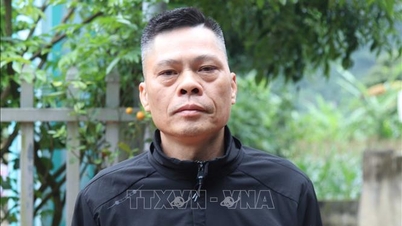
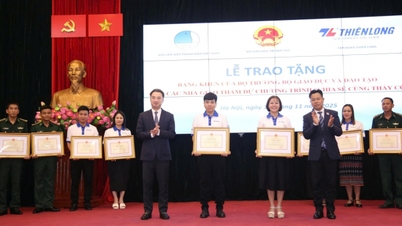






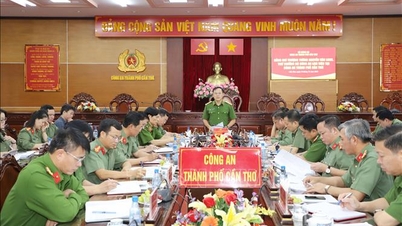
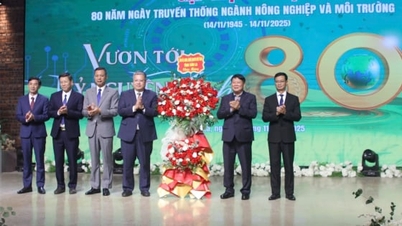

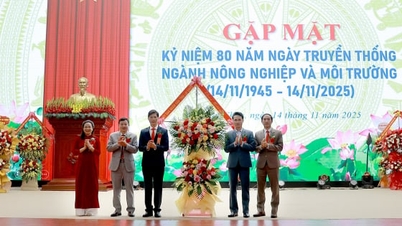
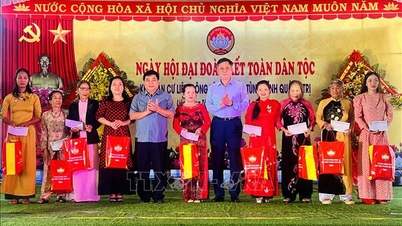
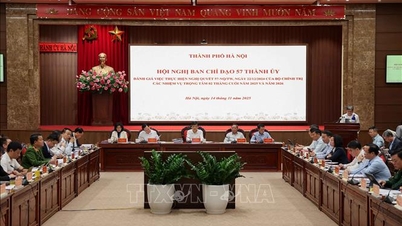




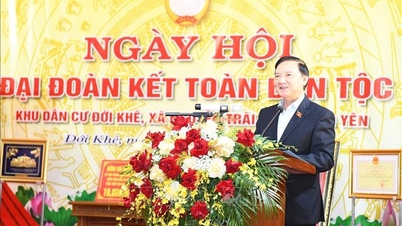
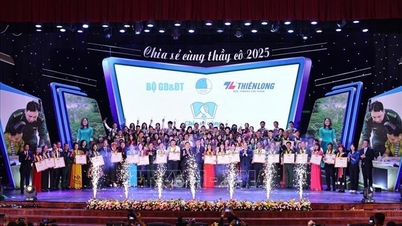
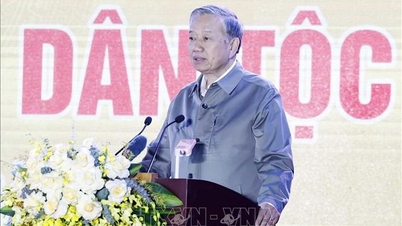
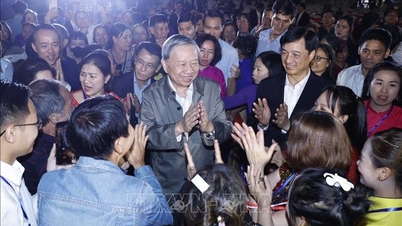
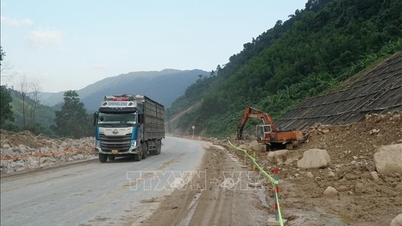


![[Photo] Special class in Tra Linh](https://vphoto.vietnam.vn/thumb/1200x675/vietnam/resource/IMAGE/2025/11/14/1763078485441_ndo_br_lop-hoc-7-jpg.webp)
















































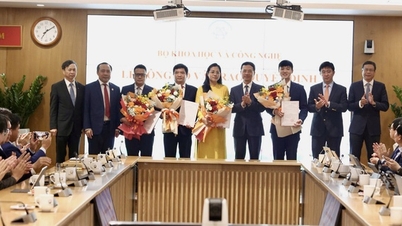


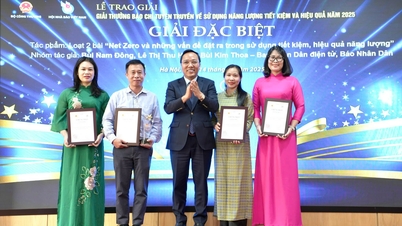


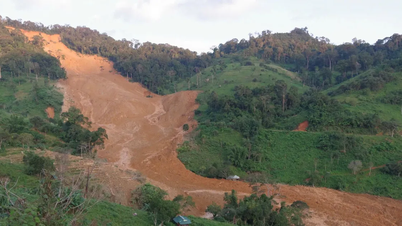

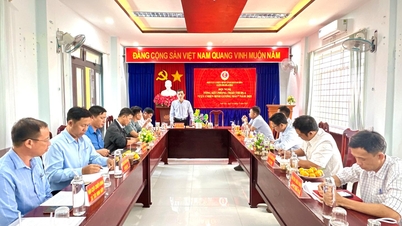

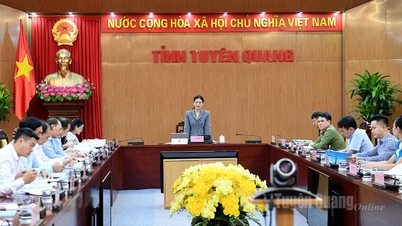

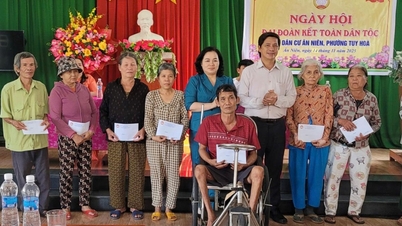

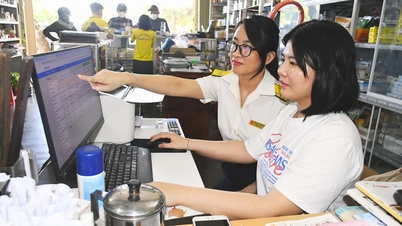











Comment (0)